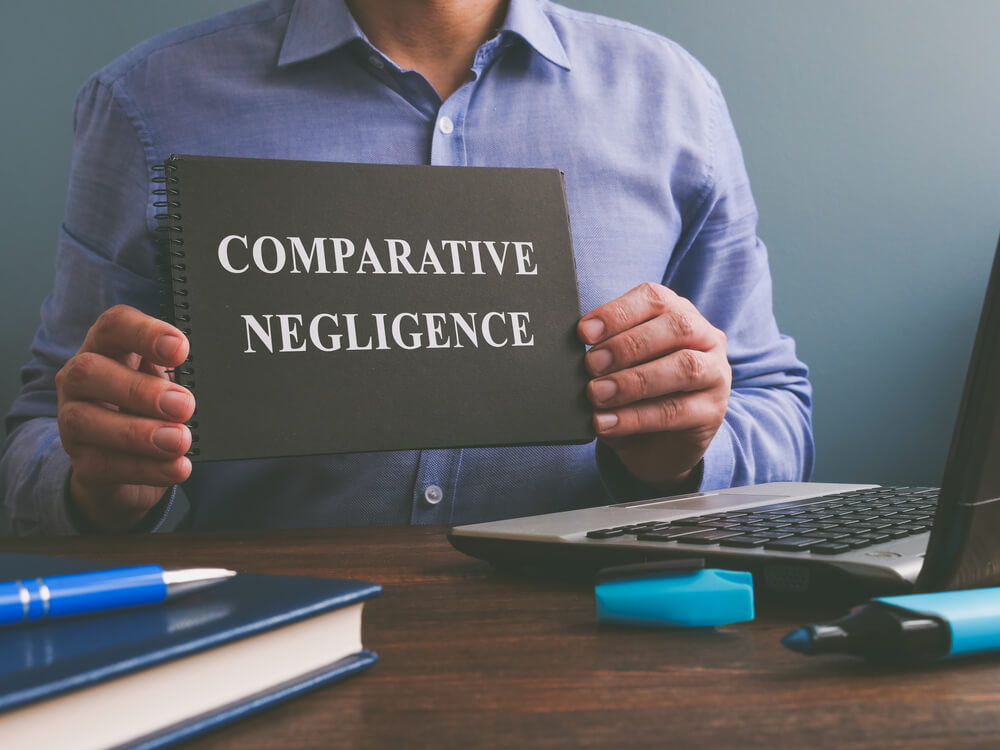
Georgia’s comparative negligence law affects the compensation a victim might receive in a personal injury claim if they were partially at fault. If they were less than 50 percent responsible, their compensation would be reduced proportionately. If they were 50 percent or more at fault, they can’t recover compensation at all.
Negligence is a critical component in all personal injury cases. It’s important to understand how the concept of comparative negligence may apply in your case and affect how much compensation you may be able to recover.
What Is the Difference Between Contributory and Comparative Negligence?
There are some significant differences between contributory and comparative negligence:
- Contributory – In contributory negligence states, a personal injury victim who is even one percent at fault is not entitled to pursue compensation. It’s not difficult to see how this may be a very unfair approach in practice, and very few states use this method in personal injury cases.
- Comparative – States with comparative negligence rules still allow a victim who is partially responsible to seek financial recovery. However, their compensation will be reduced by their percentage of fault.
The concept of negligence in personal injury cases can be complex. A Georgia personal injury lawyer can help you understand the role negligence plays in your case and the extent to which comparative negligence could affect your claim.
What Are the Rules for Pure vs. Modified Comparative Negligence?
There are also two different types of comparative negligence: pure and modified. Pure comparative negligence laws allow someone to recover compensation even if they were mostly at fault. For example, a person who was 90 percent responsible for a car accident could still recover 10 percent of their compensable losses.
Georgia, however, uses a modified comparative negligence law. This system allows only a party who is less than 50 percent at fault to recover compensation.
How Can Georgia’s Comparative Negligence Law Affect My Injury Lawsuit?
Georgia’s comparative negligence law can affect your personal injury claim in two major ways. The first is by affecting whether you can bring a lawsuit in the first place. If you were primarily responsible for the accident that injured you, you wouldn’t be able to recover compensation.
The second way is by affecting the amount of compensation you may be able to recover. If you were less than 50 percent at fault, you could recover some amount of compensation. However, the exact amount would depend on your percentage of fault. If you weren’t responsible at all, you would be entitled to be compensated for 100 percent of your losses. But if you were 25 percent at fault, you could recover 75 percent of any compensation you’re owed.
The percentage of fault has the potential to vary considerably. In turn, this can significantly impact how much compensation you may be able to recover. Your Georgia personal injury attorney’s job is to reduce your liability and protect your right to full compensation.
How Can a Personal Injury Lawyer Prove the Other Person Was More Liable for the Accident?
Determining liability in personal injury claims comes down to uncovering and reviewing all the available evidence and building a case that the other party was at fault. Your Georgia personal injury lawyer will handle this process. Meanwhile, the other party’s legal team will be doing the same thing.
Due to Georgia’s modified comparative negligence law, your attorney technically only has to prove the other party was at least 51 percent responsible. However, they will be looking for as much evidence as they can find to prove the greatest possible percentage of fault and thus maximize your compensation.
Depending on the nature of the accident that injured you, your attorney may have a variety of different evidence to review. Possible evidence may include photographs of the accident scene, video or audio recordings of the incident, eyewitness testimony, medical bills, vehicle repair bills, drug or alcohol test results, expert testimony, and more.
What Compensation Might I Recover Through a Georgia Personal Injury Claim?
You can pursue compensation for a variety of losses in a personal injury claim, including:
- Current, ongoing, and future medical expenses
- Incidental expenses arising from your injuries
- Lost income, including loss of future earning potential
- Pain and suffering
The amount and the specific losses you can recover will depend on the nature of the accident, the extent of your injuries, and your likelihood of making a physical recovery. It’s essential that you save all documentation resulting from the incident, including medical bills, receipts, communication from your employer, insurance documents, and more. Your attorney will use all these materials when calculating the amount of compensation to pursue.
Contact a Georgia Personal Injury Lawyer
Experiencing injury due to another person’s negligence can be a stressful and confusing situation. Worrying that the other party may try to pin most or all of the blame on you can make it even more difficult. You need a Georgia personal injury attorney who can review the facts of your case and fight for the full, fair compensation you deserve.
The team at Sherrod & Bernard, P.C., has more than 75 years of combined experience advocating for the rights of injury victims, and we’ve recovered millions in compensation for our clients’ losses. We’re committed to providing responsive, highly personalized legal services and dedicating ourselves to justice on your behalf. Contact us today for a free initial consultation to discuss your case.
